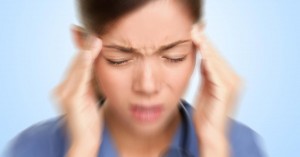 A positive psychology can boost the power and efficacy of drugs, researchers have found.
A positive psychology can boost the power and efficacy of drugs, researchers have found.
According to the findings of a new study, a patient’s expectation and doctor’s prescription will decide how well a patient will respond to the treatment.
‘‘Every word you (doctor) say counts, not only every gram of the medication,’’ study’s lead researcher, Ted Kaptchuk, from the Boston’s Beth Israel Deaconess Hospital noted.
The findings of the study are based on an assessment of 66 migraine sufferers.
The study
For the purpose of the study, researchers from the Harvard Medical School and Beth Israel Deaconess Medical Center in Boston compared the pain relieving results of commonly prescribed migraine drug with a placebo medicine.
Every time the patient suffered from the migraine attack, characterized by throbbing, thumping headache often accompanied by nausea, vomiting and light and sound sensitivity, they were administered a pill – either an active one or a placebo drug.
While some patients received a positivity sermon by the physician along with the pill, others got only the pill.
Participants were required to self-report their pain and symptoms – first at 30 minutes after the onset of a migraine attack and again 2.5 hours later.
After 450 migraine attacks, researchers found that pills accompanied by positive tidings boosted the effectiveness and efficacy of the drug in both active and placebo cases.
“When migraine patients were told by their doctor that a pill would help ease their headaches, this advice seemed to produce results whether or not the pill was a real migraine medication or a dummy placebo,” Dr. Andrew Charles, a headache specialist at the University of California School of Medicine, Los Angeles marked.
Furthermore, the bigger a positive message was given out to a patient, the higher was his placebo response, researchers marked.
“Relief was still higher with the actual medicine, so drugs do work beyond the placebo effect, but the researchers say that the placebo effect may still account for half of the therapeutic value of a drug,” Charles added.
The findings of the study are reported online Jan. 8 in the journal Science Translational Medicine.